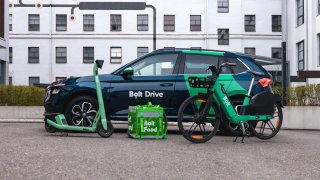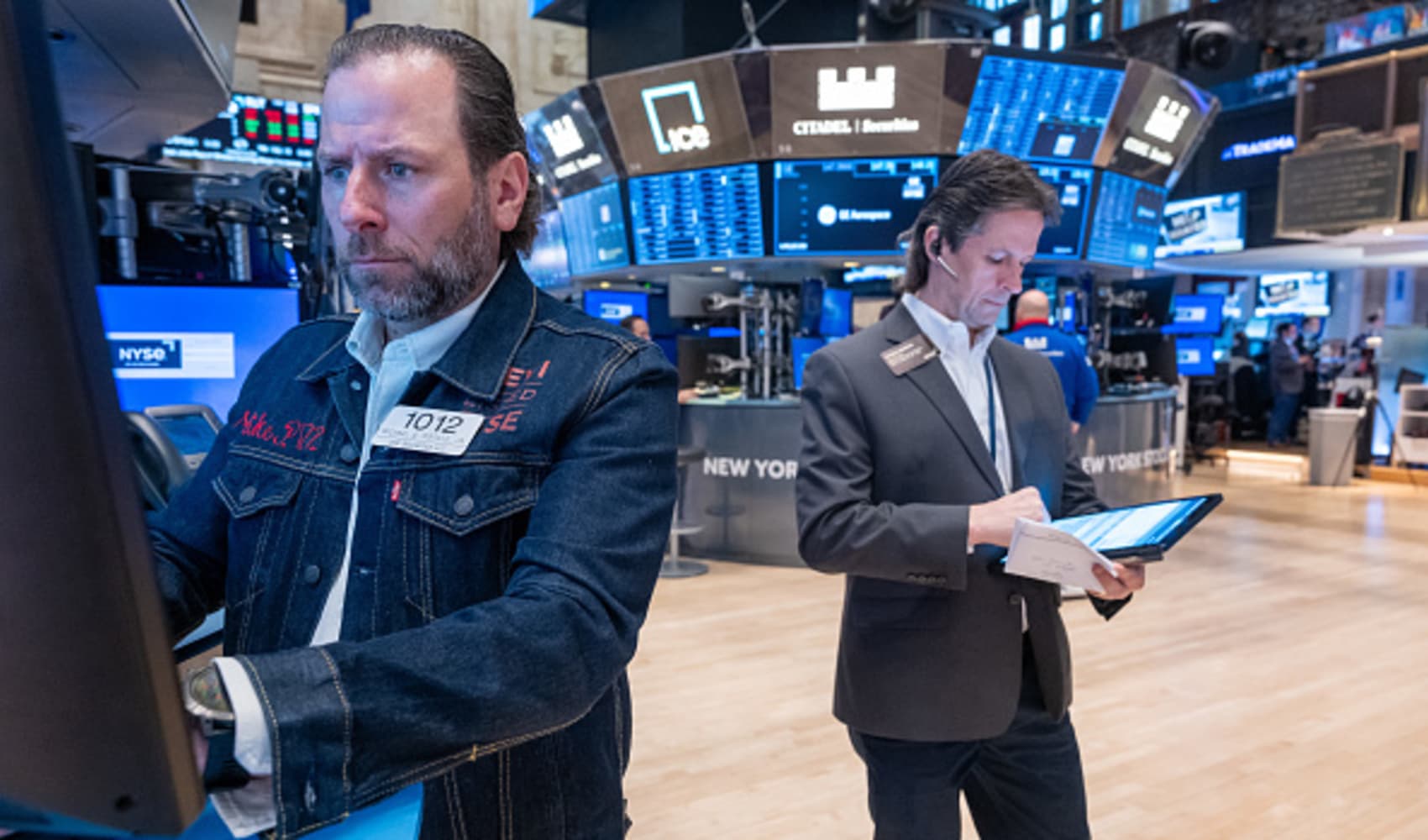
- Estonia-based ride-hailing start-up Bolt says it has raised $711 million in a new round of funding led by Sequoia Capital and Fidelity.
- The investment values the eight-year-old company at about $8.4 billion, up from $4.8 billion just five months ago.
- Asked whether Bolt will seek an IPO, CEO Markus Villig said "there's no urgency for us at the moment."
LONDON — The competition is getting tougher for Uber in Europe.
Estonia-based ride-hailing start-up Bolt said Tuesday it has raised 628 million euros ($711 million) in a new funding round led by Sequoia Capital and Fidelity.
The investment, which was also backed by Whale Rock, Owl Rock and some of Bolt's existing investors, values the eight-year-old company at 7.4 billion euros — or about $8.4 billion — up from nearly $4.8 billion just five months ago.
Get South Florida local news, weather forecasts and entertainment stories to your inbox. Sign up for NBC South Florida newsletters.
"Cities increasingly see that they want to switch over from private car ownership" to ride-hailing and other "shared mobility" options like electric scooters and car-sharing, Bolt CEO and co-founder Markus Villig told CNBC in an interview.
Founded in 2013, Bolt has become a fierce competitor to Uber, challenging the U.S. ride-hailing giant in key markets such as London and Paris. It has since expanded into several other lines of business, including online food and grocery delivery and e-scooters.
Villig said investors are beginning to see the value of the "super app," a concept that encompasses multiple services combined into one platform. The trend is particularly popular in parts of Asia but has been slower to take off in Europe and North America. Bolt says it now has 100 million customers across 45 countries in Europe and Africa.
Money Report
'No urgency' for IPO
It's been nearly three years since Uber went public, and the stock has been on a whirlwind since, hitting all-time highs in 2021 before slumping back down below its debut price. Asked whether Bolt could follow suit in seeking an initial public offering, Villig said there's more than enough money available in the private markets.
"In the long term? Most likely, yes, we will go public," he said. But, he added, "there's no urgency for us at the moment."
Villig sees on-demand grocery as a key area of focus for the company in the coming years. The sector has become intensely crowded, with an influx of start-ups from Getir to Gorillas looking to lure consumers away from convenience stores and supermarkets with the promise of ultrafast delivery times.
Bolt launched its own 15-minute grocery delivery service, called Bolt Market, in Estonia last year. Similar to competing services, the firm relies on so-called dark grocery stores which only fulfill online orders and don't serve customers in-store. It is now live in 10 countries, with dozens of dark stores set up. The company is seeing notable traction in Central and Eastern Europe, Villig said, adding it plans to open hundreds of new sites this year.
Bolt's CEO said the company was likely to spend "hundreds of millions" on building out its grocery business over the years. He questioned the sustainability of rapid grocery delivery firms, noting the industry operates on slim profit margins.
"This is not the software business," Villig said. "This is going to be a heavily competitive operational business. Most of these companies that are expecting this to be some massive profit driver are all going to be be very disappointed in a few years."
Bolt often touts its operating model as leaner and more cost-efficient compared to Uber's. The company lost 44.9 million euros in 2020, according to its most recent financial report, down slightly from losses of 85.5 million euros a year earlier. Revenues surged almost 75% to 221.4 million euros.
Uber, which has long been dogged by concerns about whether it can become a profitable business, reported its first adjusted EBITDA profit (earnings before interest, taxes, depreciation and amortization) in the third quarter of 2021.
Bolt's business was initially hit hard early into the coronavirus pandemic, with revenues plunging as much as 80% in 2020. The company looked to food delivery and other areas to boost its business when times got tough and has benefited from surging demand for ride-hailing post-lockdown. According to Villig, Bolt's ride-hailing business more than doubled in 2021.
Driver shortage
However, Uber and its competitors have struggled to match that demand with a supply of drivers amid ongoing labor shortages. That has led to higher fares and unusually long wait times in big cities like London and New York.
"Everybody's fighting for drivers," Villig told CNBC. "We've always been positioned as the most driver-friendly platform out there, in terms of better earnings, better treatment, and so on."
In November, Uber said it would hike prices in London in an effort to attract more drivers, while Bolt has allowed drivers to set their own fares in three U.K. cities.
Still, Bolt faces much of the regulatory risk that Uber has encountered over the years, from a landmark U.K. court ruling last year that Uber's drivers should be treated as workers, to incoming European regulations which threaten to upend the business model of gig economy platforms.
Villig said most of Bolt's drivers prefer the flexibility that comes with gig work and don't wish to be treated like employees — a designation that would give them key benefits such as a minimum wage and holiday pay.
"We think that common sense in the long term is going to prevail," Villig said. "I don't think that it makes sense to force all of them into a model that they don't actually frankly want." Most countries are likely to find a "flexible system" that enables both full-time and flexible working hours, he added.






